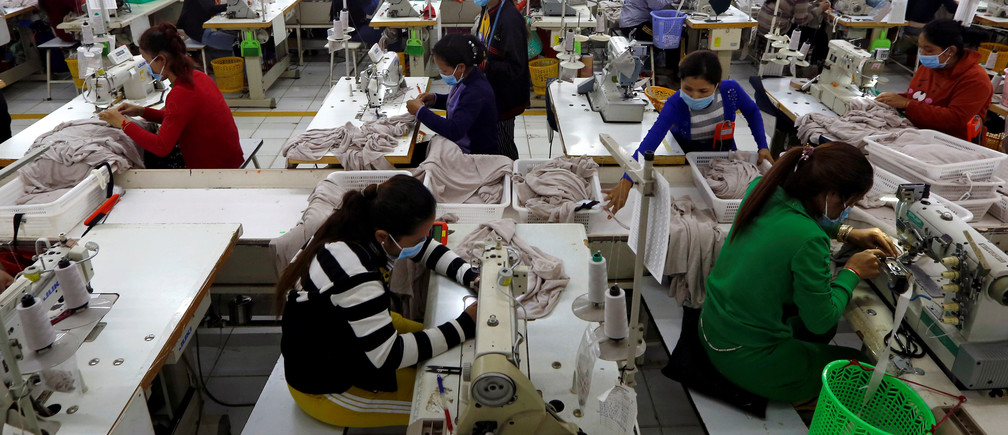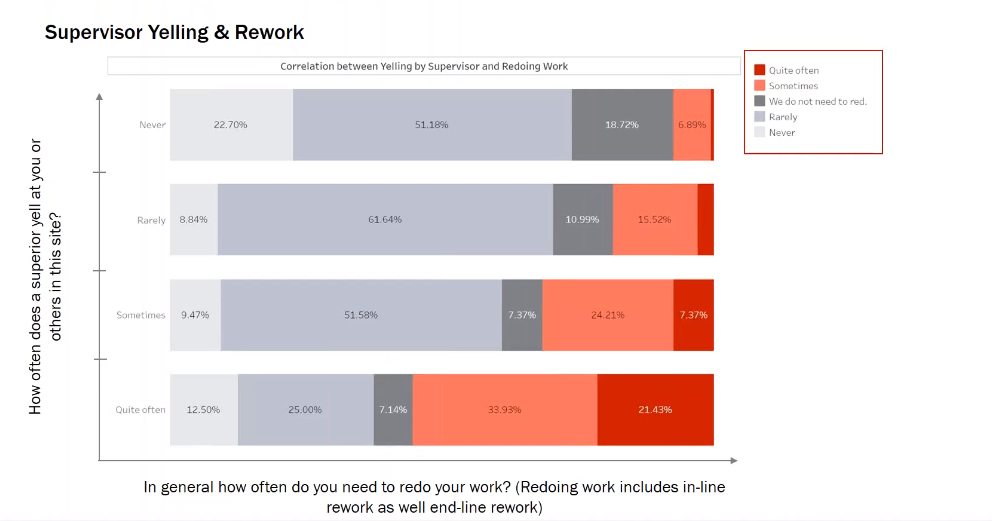 'Sitting is the new smoking,' according to Harvard business school
'Sitting is the new smoking,' according to Harvard business school
Poor mental health is one of the biggest issues facing us today. By 2030, the cost to the global economy of all mental health problems could amount to $16 trillion. However, rarely is the issue talked about in the context of the factory workers who assemble our day-to-day goods.
The majority of factory workers in the world today are domestic or international migrants. Their time in the factory is characterized by suboptimal working conditions, long hours, limited space for working and living and, in some cases, harassment. They manage all these pressures while living in a foreign environment. These conditions may continue to worsen as factories race to the bottom for human labor to compete with automation. While the reports of workers at factories committing suicide have largely ceased, the mental health crisis has not. It is simply not being talked about – or measured accurately.
Putting people at the center of decision-making, We recommend a three-pronged approach to limiting and treating this mental-health crisis.
Empathy
In this context, empathy means designing solutions that take account of workers’ perceptions of their environment. Recent data from Elevate, collected from 149 factories in China and representative of more than 30,000 factory workers, shows that workers who report their supervisors “often” shout or yell at them are three times more likely to say they need to redo their work, in comparison with workers who say their supervisors “sometimes” shout or yell at them.
 Image: Elevate
Image: Elevate
There are three key steps to encouraging the development of more empathy in factories:
1) Assess current communication. Start by asking: “How do factory supervisors communicate with workers? What tone and language do they use?” If there is any yelling, rude language, dismissive or unclear communication, this can discourage workers from asking questions when they’re not clear about quality requirements or have an idea to improve productivity.
2) Build an improvement plan. Research from Tufts University shows that simple interventions can go a long way. Supervisors who were asked to imagine what their workers ate for breakfast were more likely, when shown data about verbal abuse in factories, to acknowledge it as a problem and say they plan to take action. Data from a collection of brands in China shows that worker-management communication interventions were associated with a 15% decrease in workers’ self-reported stress levels. Mattel’s training, meanwhile, makes a point of teaching supervisors to smile more.
3) Measure progress. Gauging empathy is a challenge, but asking factory workers if they feel comfortable talking to their supervisors is a good place to start.
Health and nutrition
At a corporate level, companies understand that nutrition impacts productivity. What’s less talked about is how improving nutrition in factory workers can improve a company’s bottom line and contribute to other positive environmental externalities. Nutrition plays a key role in blood sugar levels: spikes and troughs in blood sugar levels have been proven to impact self-control on a given activity and brain function.
Better Work Cambodia, an initiative of the International Labour Organization, found that 67% of factory managers believe nutrition is the main constraint to productivity levels in their factory. Results also show that the majority of respondents feel companies/factories should be involved in the challenges related to nutrition, and a significant percentage feel that workers lack access to information on nutrition and do not eat a healthy diet. The study was conducted in 2011 across 27 factories in the country, employing just over 34,000 workers, which at the time represented about 10% of the sector.
Factory workers themselves recognize the benefit of nutrition as well. According to Elevate, when factory workers are asked directly about the additional support they’d like, 22% say training on nutrition is a top priority (based on data from 21,000 factory workers across 14 countries).
Exercise and mindfulness
It’s well established in the medical field that mental health is inextricably linked to physical health. The practicalities of Adam Smith’s division of labor ultimately mean that the same factory worker is doing one hyper-specialized task again and again for likely at least nine hours per day up to seven days a week. In these marathon work sessions, their bodies and minds can become desensitized in order to cope with the repetitiveness of sewing a sleeve on to a jacket 400 times per day or placing two parts of 700 phones together.
At the corporate level, we know that workers are encouraged to move every 30 minutes to optimize performance and vary the content of their work to optimize creativity, so why aren’t we doing that in factories? Any worker needs to stretch and look after their body to prevent strain, as well as to achieve the best performance. Many credible sources, including Harvard Business School, report that “sitting is the new smoking” and some factory workers, depending on their position or department, may sit all day every day. Referencing Elevate data, 18% of supervisors estimate that regular rotation of workers’ positions would improve productivity in the factory.
Green Mountain Coffee in the United States incorporated daily mindfulness stretching sessions to the start of each work day for more than 5,000 manual laborers across their roasting, packaging and distribution facilities. As a result of the mindful stretching practices, which target areas of the body that typically hold tension, GMC saw injury rates decline across the company.
Anecdotally, workers who undertook the mindfulness stretching program reported that they felt less pain at the end of the day and less stress at the end of the week.
A win-win situation
Not only is improving factory workers’ mental health provisions the right thing to do, it is the economically sensible thing to do because satisfied workers mean better quality products, better retention for factories and ultimately better bottom lines for businesses. As the Fourth Industrial Revolution swings into action, it’s more important than ever to remember the humans behind our products.









